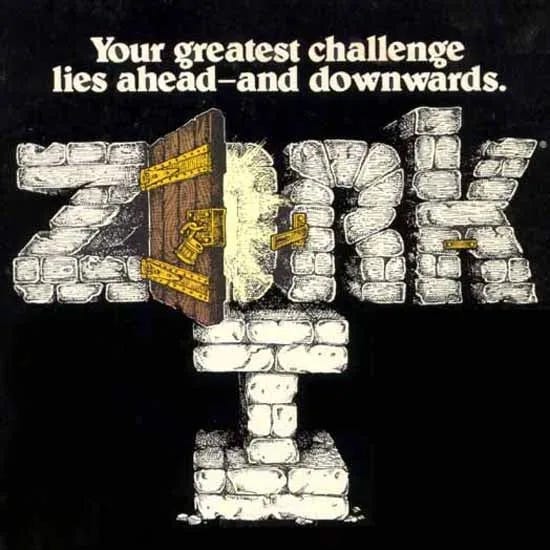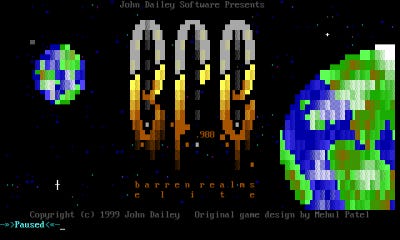Forgotten Worlds Remembers: Earth:2025
A look back at a game that paved the way for the modern MMO and MOBA scene.
Sometime in the spring of 1997, in a New England high school’s computer lab, there was a remark. “There’s not enough biotech missiles on this market right now.” That made no sense, surely I couldn’t have heard right.
“What do you mean biotech missiles and market? That sounds like a game, there’s no games on these computers.”
“The game isn’t on the computer. It’s on the internet. You run a country. You get tech and missiles and you attack other countries with them.”
And just like that, I was drawn into a game that pioneered a slew of gaming ideas that are taken for granted by the modern audience.
In the late 1980s through the mid 1990s, there was a style of game called a “BBS door game.” BBS means “bulletin board service,” sort of a proto-dropbox. The internet at that time was in its infancy, and playing actual online games meant trading nice graphics and sound for interacting with more players. BBS games were typically text based, and players could take their actions on their own time with other players reacting later.
MUDs, or multi-user-dungeons, were a thing that came about in the 70s with Zork, one of the seminal moments in gaming. There was no internet at all in those days, so early MUDs were hosted on local networks like university library systems. MUDs tended to emphasize role playing and communities as they evolved.
As these similar but discrete styles were evolving in the 90s, brothers Amit and Mehul Patel created some of the best known BBS style games at the time. First Amit Patel made Solar Realms Elite in 1990. Mehul Patel made the follow up, Barren Realms Elite, in either 1994 or 1995.
Barren Realms Elite made the leap to a full browser based game, called Earth: 2025 sometime in 1996. That is the game my friend Rizwan was playing in the computer lab, and the game I soon would also be playing in our computer lab.

The premise of the game was pretty basic - the world has had a nuclear apocalypse, and you (the player) are a warlord that has taken control of a small nation. You must grow your land, build economically beneficial buildings, invest in technology, grow your military, and take land from the other nations. At the end of a round, whoever has the highest score total from these actions is the winner.
The key twist was that massively multiplayer online gaming as it is now did not exist in 1996 - except for Earth: 2025. BBS games and MUDs were limited in scope first by the nonexistence of the internet, and then by slow early connections. These limitations are why, for example, the original Neverwinter Nights cost $6.00 per hour to play. These games were also typically gated behind the various walled garden providers of the era, like AOL and Compuserv. Earth: 2025 was the first game to put this format into the worldwide web, for free.
Like its predecessors, E:2025 was a text based game. Your country accumulated turns over time, and when you logged in you would spend them. You could explore, build, attack, research, spy, or simply spend a turn flogging your tax base for maximal returns. The real genius mechanism of the game, though, and the thing that kept it interesting over time, was the public market. More on that later.
Various government choices gave different bonuses and penalties. For example a communist country might get a boost per turn to its industrial production, but a penalty to its per turn tax income. Naturally, choosing a strategy that synergized with your government choice was key to a high score.
The strategies of the game were varied enough. You could run cashers - produce cash every turn, eat tons of food, spend money on military and tech. Maybe you’d prefer a farmer - produce lots of food, sell it to buy tech and everything else. Both cashers and farmers gain their income as a byproduct of spending turns doing anything. Some prefer the techer strat, which only produces its chosen commodity by choosing to spend a turn on researching. This adds a layer of complexity compared to the casher or farmer strats. There was also reselling - basically, playing the public market for income instead of depending on your per turn production. Finally, there’s the industrialist.
In the ‘90s and early ‘00s, the industrialist was the first strat taught to all the n00bs. The basic idea is that your country would build only industrial complexes, and produce such a surplus of military that you could sell it on the public market to fund your operations. As you grew using this strat, your per turn cash flow and food consumption went heavily negative. Teaching this strategy to new players first provided a stark object lesson in the key to success at the game: specialization.
Those who did not specialize, and tried to build their countries to produce all their needs, inevitably lost to those who recognized the comparative advantage of focusing on one narrow area and maximizing their advantage at it. The relative strength of each strategy versus the other fluctuated with each round’s market conditions, which were a function of how many people played each strat type, and how much war engulfed the server in a given round.
The game had different servers too, with different rules. Primary server had slow turn rates, long resets (2 months), and was everyone versus everyone. Tournament was a ladder tourney, with games from A to Z. Win in the lower rungs, and you’d get promoted up. Turns in tournament came faster than primary, and the resets were 30 days long. Express was an on again/off again variant that was offered sometimes. As the name suggests, the game was dramatically compressed, with a turn rate 6-8 times faster than Primary and a 5 day reset.
The real action and game community grew up around the alliance server. Alliance was the only server that allowed clans, or player coordination. Soon enough the best alliances had hundreds of people in them, and massive alliance wars came and went with regularity.
The alliance aspect led directly to a big online social scene for the game. Forums hosted by the game were offered, but most people congregated in IRC chat rooms, or used instant messenger services like ICQ and AIM.
At its peak, on the primary and alliance servers, the game would have close to 20,000 people in a reset. Tournament would see a few hundred in each of the games at lower rungs, and always had 225 countries in the top rung (game A). Like any community of that size, there were factions and fights and fun and controversy.
As time progressed, Mehul Patel lost focus on the game. In fact, he lost focus on games entirely, selling all his gaming properties and eventually opening a coffee shop in 2011. Earth: 2025 changed hands a few times, before finally being shuttered in 2009.
Earth: 2025’s legacy can be seen in the massive popularity of MOBA games on mobile - with Earth, there would be none of them.
That was not the end of the story. Given the nature of the game, the community had a high concentration of programmers. Sure enough, a community effort went out to save the game, and it was reincarnated as Earth: Empires in December of 2009.
As 2025 breaks, the game named after the year keeps on going in its new form. With several different servers on offer, including most of the classic offerings, as well as some new ideas, play continues apace. The newest addition, the “Cooperation” server, offers clan based play focused on score over war and changes major play mechanics each round. All the clan politics and war dynamics are still there on the Alliance server, and Primary is still the big EvE offering. Express runs every week now, and Free For All allows 1 player to run up to 16 countries per round.
The community aspect has evolved as well. Most alliances are on Discord instead of IRC these days, and while there are still game forums, the official Discord sees a lot more action.
To join the fray, go to https://earthempires.com/ and sign up. All you need is a valid email address. You can find the official EE discord here, and if you’re interested in tracking me down on Discord, you can go to here, or here.
For a more in depth discussion, see the companion podcast posted simultaneously with this post.






